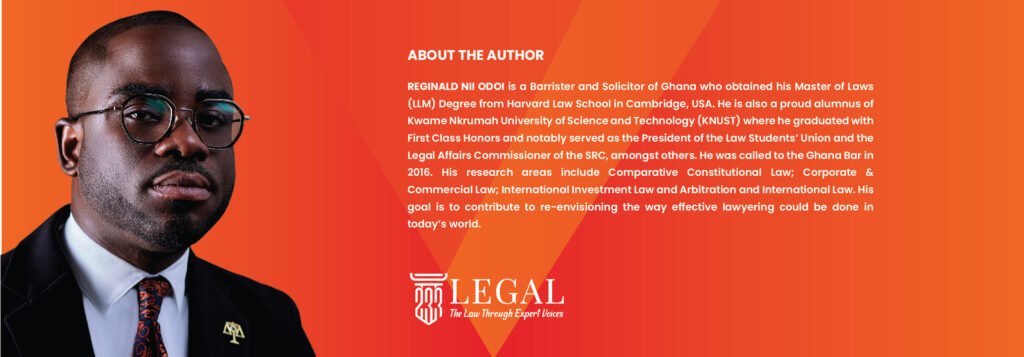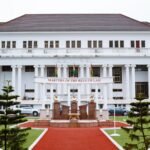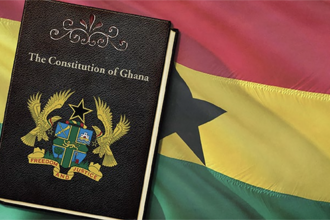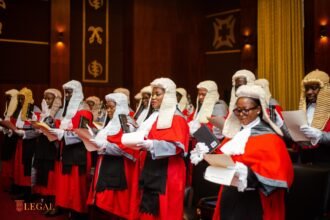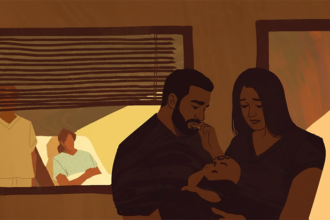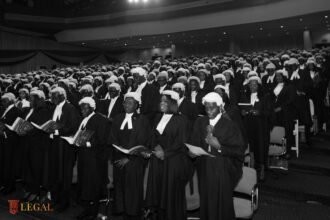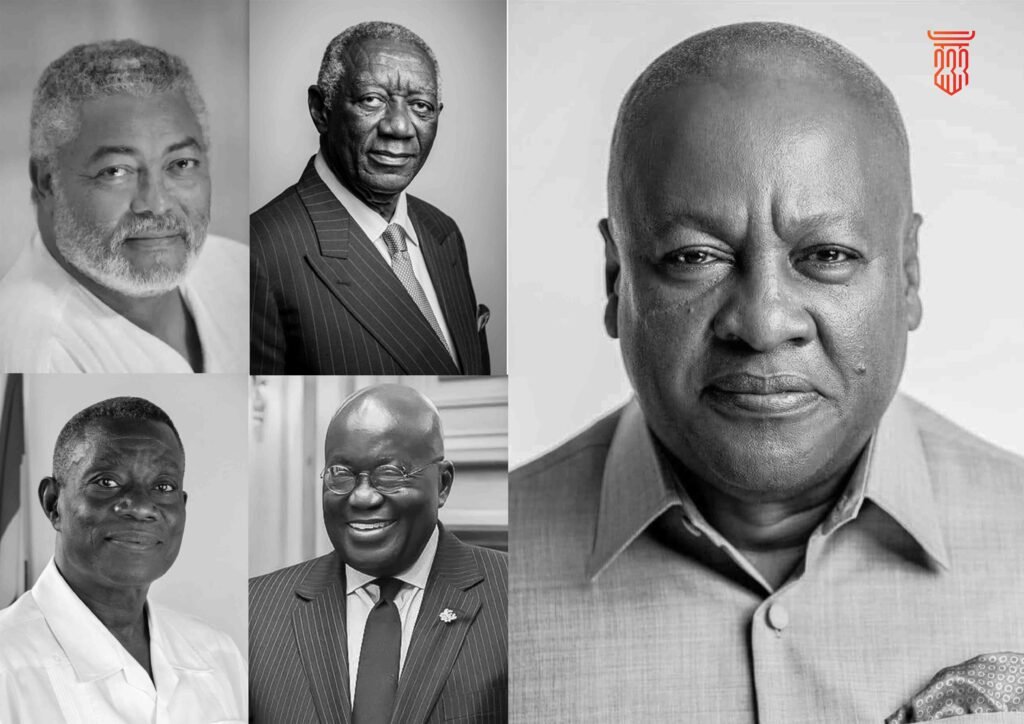

Introduction
In order to fulfil these duties, the President would need maximum ability to deal fearlessly and impartially with the duties of his office.
In Ghana’s vibrant democracy, political parties play a crucial role in shaping the country’s governance. The relationship between the President and his or her political party is particularly significant as it can impact policy implementation, parliamentary dynamics and overall stability. Article 97 of the 1992 Constitution provides that a Member of parliament shall vacate his or her seat if that Member of Parliament leaves the party of which he was a member at the time of his election to Parliament to join another political party or seeks to remain in Parliament as an independent member, or if he was elected a Member of Parliament as an independent candidate and joins a political party. The Constitution, however, does not contain a provision intended to regulate a possible situation where an incumbent President or Vice President leaves the party of which he was a member at the time of the election to office to join another political party or seeks to remain in office as an independent. This question raises serious legal and political implications that warrant exploration. This essay examines the constitutional and legal framework governing party loyalty in Ghana, the potential consequences of a President leaving their party and the implications for governance and accountability.
The President of the Republic of Ghana
The President of the Republic of Ghana is more than a Member of Parliament. Article 58(1) of the Constitution establishes that the “executive authority of Ghana shall vest in the President and shall be exercised in accordance with the provisions of this Constitution.” Accordingly, Article 57(1) establishes the Office of the President of Ghana who shall be the Head of State and the Head of Government and Commander-in-Chief of the Armed Forces of Ghana. The President of Ghana thus takes precedence over all other persons in Ghana. This underscores the President’s position as a unifying figure, expected to prioritize national interests over party loyalty. The President is elected by one constituency, that is the whole of the Republic of Ghana unlike Members of Parliament who are elected from different constituencies within Ghana. Once in office, a President has the whole country as the Constituency of the President to contend with. Meaning, once a President is elected, he or she has to deal with problems of the nation as a whole. He or she becomes the unifying factor of the nation and the actions and utterances of the President should reflect that sacred trust of unifying the country as “one nation, one people, one destiny.” Before taking office, the President swears or affirms to “preserve, protect and defend the Constitution of the Republic of Ghana.” The President swears to “bear true faith and allegiance to the Republic of Ghana to uphold the sovereignty and integrity of Ghana” and dedicates himself “to the service and well-being of the people…and to do right to all manner of persons.”
The President of Ghana, Party Loyalty & Governance
The 1992 Constitution makes room for multi-party democracy and allows for political parties to participate in shaping the political will of the people, to disseminate information on political ideas, social and economic programmes of national character and sponsor candidates for elections to any public office other than to District Assemblies or lower local government units. While the constitution does not explicitly address party loyalty, Ghana’s party-centric politics means that loyalty to one’s party is often seen as essential for political survival and success. The party provides a platform for policy implementation, mobilization and support, amongst others. When a President leaves his or her party, it can create uncertainty and potentially destabilize governance. Party members may feel betrayed leading to internal conflicts and potential defections.
Internationally, instances of Presidents leaving their parties have varying consequences. In some cases, it has allowed for greater independence and flexibility. In others, it has had significant political implications. In others also, a President’s decision to leave or switch parties does not affect their constitutional powers and eligibility to hold office. A President leaving his or her party, in Ghana, would be unprecedented and such a move may likely have significant repercussions. In the case of Members of Parliament, the Supreme Court in Afenyo Markin v Speaker of Parliament & Attorney-General Writ No. J1/01/2025 held that “an MP vacates their seat if they leave the party under which they were elected to join another party or become independent and seek to remain in parliament under their new political status or in the case of independent MPs, he or she vacates the seat if they join a political party in Parliament and seek to remain in Parliament under their new political status.”
Legal Implications of a President leaving their political party
It is respectfully submitted, that the idea that a President should not leave the political party on whose ticket the President was elected into office should not be entertained. A President should not be held to ransom by a political party. As stated above, once elected, the President has the whole country as the constituency of the President to contend with and has to be non-partisan in the approach to the solution of the problems of the Republic. The President should have the constitutional right to abandon any part of the manifesto or indeed the whole of the manifesto of the political party to which he or she belongs if the departure is in the best interest of the country as a whole. This is because the Directive Principles of State Policy, with or without the manifesto of the political parties, governs for the President no matter his or her political colour. The Presidential oath to do right to all manner of people and to bear true faith and allegiance to the Republic must take precedence over any other party interest.
The parochialism of political party politics in the Ghanaian set up could surely prevent the President from making a mark in the development of the country. Events have dictated, for example, that a President should not be tied down by the apron strings of parochial party-political machinations and therefore abandon the continuation of development projects by his or her predecessor. The President should be as free as a mountain bird for the benefit of the country as a whole. Simply kotowing to the party line whether or not that line is in the best interest of the Republic would subtract to the disadvantage of the welfare of the people of Ghana. There are “rebels” who stay in the political party and there are “rebels” who leave the political party to join another political party or even remain independent. The President should not be an exception. In fact, Winston Churchill crossed to the Liberals and crossed again back to the Conservatives. That did not prevent him from becoming the Prime Minister of Great Britain. This shows that individual merit counts too. Thus, a President leaving his or her political party should be encouraged rather than frowned upon. A President, where need be, should “not allow his or her honour to be rooted in dishonour nor allow faith unfaithful to make him or her falsely true.”
Conclusion
The phenomenon of a President leaving their party in Ghana raises complex legal questions. As explored in the discussion, given Ghana’s party-centric politics and the importance of party loyalty, a President’s decision to leave their party would be unprecedented and likely to have significant repercussions. To mitigate potential instability, it is essential for Ghana to consider constitutional clarity on party loyalty and its implication for the President. Ultimately, the relationship between the President and their party is critical to effective governance. It is crucial to prioritize stability, accountability and the rule of law. That notwithstanding, it is submitted that a President’s decision to leave or switch parties should not affect their constitutional powers or eligibility to hold office as the Constitution does not require the President to maintain party loyalty.
God bless!
